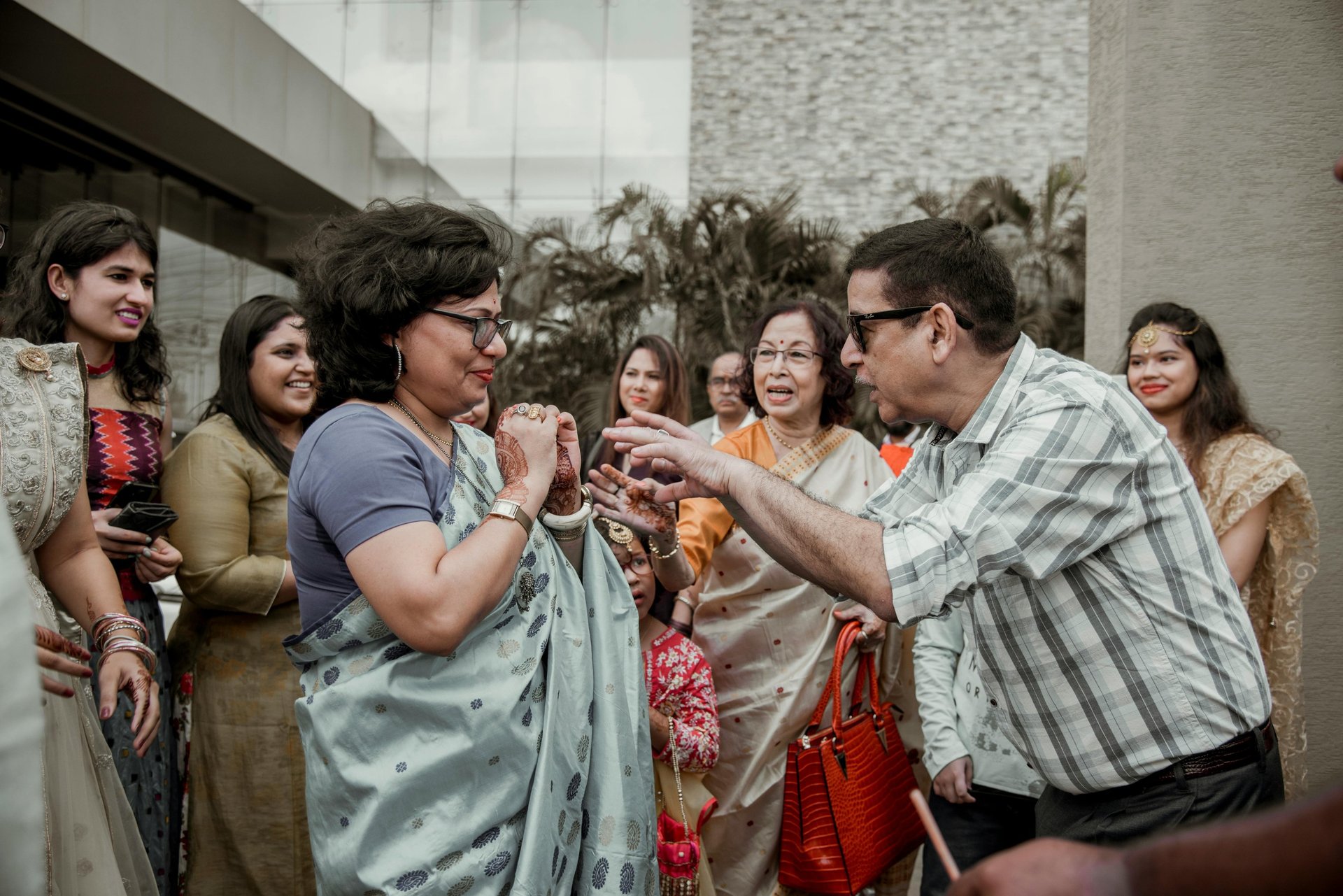Couples Therapy vs. Marriage Counseling: Understanding the Difference and When to Seek Each
Relationships are complex, and it's not uncommon for couples to encounter challenges. Whether you’re dating, engaged, or married, nurturing a healthy relationship often requires intentional effort and communication. When difficulties arise, therapy can help partners reconnect and work through issues. Two of the most common types of support for couples are couples therapy and marriage counseling. While these terms are sometimes used interchangeably, they serve distinct purposes.
1/1/20253 min read
What Is Couples Therapy?
Couples therapy is a specialized form of psychotherapy that helps partners address and resolve conflicts, increase intimacy, and improve communication. It is not exclusive to married couples; individuals in all types of romantic relationships can seek this form of therapy to strengthen their connection. According to Dr. Brian Mueller, a psychologist specializing in couples therapy, it addresses a broad range of relationship issues, such as communication breakdowns, emotional disconnection, infidelity, sexual concerns, and external stressors impacting the relationship.
The goals of couples therapy vary but generally focus on creating a safe space for partners to openly discuss their feelings and concerns. By enhancing understanding, respect, and intimacy, couples can work toward developing healthier dynamics that contribute to a more fulfilling partnership.
Issues That Couples Therapy Can Address:
Couples therapy can address many aspects of a relationship, including:
Roles and Dynamics: Understanding and adjusting relationship roles to avoid unhealthy power dynamics.
Values and Beliefs: Exploring differences in beliefs or values and how they impact daily life.
Finances: Encouraging open communication around income, spending, and financial goals.
Quality Time: Identifying ways to enhance quality time and build shared interests.
Parenting and Family: Helping couples navigate challenges related to parenting, family conflicts, or conception difficulties.
Intimacy and Sexuality: Providing a safe space to discuss needs, address intimacy concerns, and work through infidelity.
Health Issues: Supporting couples in dealing with the stress of physical or mental health challenges.
External Stressors: Addressing stressors like work, social pressures, or unexpected life events that affect the relationship.
Couples therapy often uses techniques from various therapeutic models, such as emotion-focused therapy, the Gottman method, and other relational approaches that emphasize understanding emotional triggers, managing conflicts effectively, and enhancing emotional bonds.
What Is Marriage Counseling?
Marriage counseling is a form of therapy specifically geared toward individuals in a marital relationship, including newlyweds and couples preparing for marriage. Marriage counseling helps partners build a strong foundation by providing tools to improve communication, resolve conflicts, and set realistic expectations. Unlike couples therapy, which often delves into the root causes of issues, marriage counseling typically focuses on proactive strategies to enhance the marriage.
Marriage counseling is often a shorter-term process, consisting of a few sessions aimed at teaching couples practical skills to support a healthy relationship. Topics include effective communication, conflict resolution, managing expectations, and understanding each other’s needs. Marriage counselors might use cognitive-behavioral or solution-focused techniques, emphasizing practical skills to strengthen the partnership.
Key Differences Between Couples Therapy and Marriage Counseling
Although both couples therapy and marriage counseling aim to improve relationships, they differ in focus, timing, goals, and techniques.
1. Focus of Treatment
Couples Therapy: Primarily addresses issues affecting the relationship itself, whether or not the partners are married. It involves exploring deeper emotional dynamics, unresolved conflicts, and unhealthy patterns.
Marriage Counseling: Focuses explicitly on the marriage bond, helping couples create a stronger foundation. It often includes discussions around values, expectations, and general skills for managing marital challenges.
2. Timing of Treatment
Couples Therapy: Typically sought when partners are experiencing significant distress, ongoing conflicts, or emotional disconnection.
Marriage Counseling: Commonly pursued by newlyweds, couples preparing for marriage, or those experiencing mild conflicts, often as a preventive measure.
3. Goals of Treatment
Couples Therapy: Aims to enhance communication, resolve deep-seated issues, and rebuild intimacy. It often requires a long-term commitment to effect lasting change in the relationship.
Marriage Counseling: Focuses on equipping couples with skills to maintain a healthy marriage, emphasizing practical strategies over in-depth exploration of emotional issues.
4. Techniques Used in Treatment
Couples Therapy: May use emotion-focused therapy, the Gottman method, or attachment-based techniques, which encourage understanding each other’s emotions and strengthening the relational bond.
Marriage Counseling: Often uses cognitive-behavioral or solution-focused approaches, which involve practical exercises to address immediate challenges and improve communication.
5. Duration of Therapy
Couples Therapy: Often requires eight to twenty sessions, depending on the level of distress. The duration is flexible, catering to the specific needs of the couple.
Marriage Counseling: Generally a shorter-term engagement with fewer sessions, providing couples with essential tools to support their marriage.
When to Seek Couples Therapy vs. Marriage Counseling
Choosing between couples therapy and marriage counseling depends on the needs of the relationship:
Consider Couples Therapy if you’re facing serious issues, such as infidelity, addiction, or repeated conflicts that feel insurmountable. This form of therapy is more intensive and beneficial when couples need to work through deep-seated challenges.
Consider Marriage Counseling if you’re looking for a proactive approach to strengthen your marriage, whether you’re newlyweds or preparing to get married. Marriage counseling provides guidance on communication, conflict resolution, and other skills that lay the groundwork for a stable relationship.



Sight Within by Garima Bajpai
Online psychological support | India
Services are provided online and available across India.
Confidential & appointment-based services
